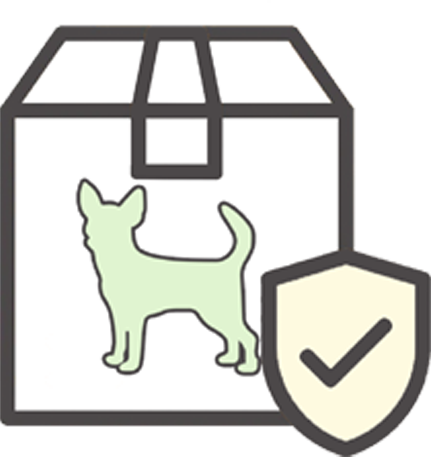All About Bad Doggy Breath
Friday, September 07, 2018 04:34:43 PM America/Los_Angeles
A common misconception that many people have is that it is normal for dogs to have halitosis, or bad breath. Halitosis is the result of the build up of bacteria that produce odors in the mouth, gut, or lungs. If your dog persistently suffers from bad breath, this suggests that your dog could benefit from improved dental care. It may also suggest that your dog has issues with his gastrointestinal tract, kidneys, or liver. No matter the case, bad breath is a sign that something is wrong with your pet health-wise.

Photo by Boryana Manzurova
What Is Bad Breath Caused By?
In most cases, bad doggie breath is caused by gum or dental disease. Certain types of dogs are more susceptible to plaque and tartar than others. Smaller dogs, for example, are more likely to have bad breath from plaque and tartar. If bad breath persists despite improved dental care, it may be an indication of major medical problems with the gastrointestinal tract, mouth, respiratory system or internal organs.
How Can I Determine the Cause of My Dog’s Bad Breath?
If you do not brush your dog's teeth regularly or your dog isn't a chewer, then the cause of your dog's bad breath is most likely plaque build-up. With time, poor dental care can cause your dog to develop periodontal disease. The build-up of too much tartar and plaque can cause the gums to push away from your dog's teeth. This can expose even more areas for odor-causing bacteria to develop. Not only can this cause your dog's gums to become inflamed, but it can also result in tissue destruction, cavities, pus formation, tooth loss, and infection. As you can imagine, the combination of all these factors can lead to terrible breath.
Even if you suspect that your dog has bad breath due to poor dental care, you should still take your dog to see a veterinarian. Only a veterinarian can determine the cause of a dog's bad breath for certain. The veterinarian will conduct laboratory work and a physical examination. The veterinarian may ask you questions about your dog's oral hygiene, diet, general behavior, and exercise habits.
It is particularly important that you take your dog to see a veterinarian if he develops unusually bad breath suddenly. Bad breath, especially if the smell is strange, can be a sign that your dog is suffering from a medical problem that needs to be treated immediately. For example, if you notice that your dog has fruity or sweet breath and has been using the dog potty more often than usual, your dog may have diabetes. When you tell your veterinarian that your dog has bad breath, you should also make sure that you mention any potentially relevant information, such as the fact that your dog is using the pet potty more frequently. Unusually foul breath may be accompanied by lack of appetite, omitting, and yellow-tinged gums or corneas.
How Is Bad Breath Treated?
The treatment of bad breath will depend primarily on the diagnosis. For example, if plaque is the reason your dog has bad breath, he may need to have a professional cleaning. If your dog's diet is the issue, you may need to change the pet food you feed your diet. If the cause is a medical problem with your dog's lungs, liver, or kidneys, your veterinarian will tell you the steps that you should take to get the issue resolved.
How Can I Prevent My Dog From Having Bad Breath?
A common misconception that many people have is that all dogs get bad breath after a certain age. However, the truth is that as long as you proactive when it comes to the oral health of your dog, chances are you won't have to deal with bad doggy breath. Here are a few tips for how to fix bad dog breath.
- Bring your dog to the veterinarian regularly for checkups to ensure your dog is not suffering from any major medical issues that cause halitosis.
- Be sure your veterinarian checks the state of your dog's gums, teeth, and breath.
- Feed your dog a diet of easy-to-digest, high-quality feed.
- Use a toothpaste for dogs to brush your dog's teeth every day or every other day.
- Give your dog hard chew toys. The chewing will naturally clean your dog's teeth. Keep these toys in the fresh grass in your backyard so that they can use at any time.
- Give your dog treats that are formulated to improve your dog's breath. You can feed your dog these dog treats as you play with your dog in the real grass.
- Ask your veterinarian for any oral health problems that he or she recommends.
As you can see, there are many steps that you can take to help resolve bad breath in dogs. For more information about bad doggy breath and how to resolve this issue, don't hesitate to contact us. You can also reach out to us to learn more about the products we offer for dogs.

